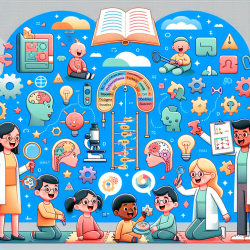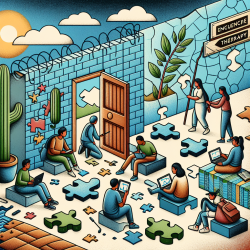As a passionate advocate for creating great outcomes for children, it's crucial to stay informed about the latest research in mental health care. One such study, the European COMPARative Effectiveness research on blended Depression treatment versus treatment-as-usual (E-COMPARED), offers valuable insights that can significantly improve our practice. This randomized controlled, non-inferiority trial conducted in eight European countries provides robust data on the clinical and cost-effectiveness of blended depression treatment compared to traditional treatment-as-usual (TAU).
The E-COMPARED study focused on adults diagnosed with major depressive disorder (MDD) and employed a combination of mobile and Internet technologies with face-to-face treatment. The trial's primary outcome was the improvement in symptoms of depression, measured using the Patient Health Questionnaire-9 (PHQ-9). Participants were followed up at 3, 6, and 12 months to determine clinical improvements and cost-effectiveness.
Here are the key findings from the E-COMPARED study:
- Clinical Effectiveness: Blended depression treatment was found to be clinically non-inferior to TAU. This means that the combination of online and face-to-face therapy is just as effective as traditional face-to-face therapy alone.
- Cost-Effectiveness: The study demonstrated that blended treatment is more cost-effective than TAU. This is primarily due to the reduced number of face-to-face sessions required, which lowers overall treatment costs.
- Patient Satisfaction: Patients reported high levels of satisfaction with blended treatment, appreciating the flexibility and accessibility it offers.
Implementing the outcomes of this research in your practice can lead to several benefits:
- Improved Access: Blended treatment can make mental health care more accessible, especially for children in remote or underserved areas.
- Enhanced Efficiency: By integrating online components, therapists can focus on more personalized and process-related aspects during face-to-face sessions.
- Cost Savings: Reducing the number of in-person sessions can lower costs for both providers and patients, making mental health care more affordable.
To leverage these benefits, consider incorporating blended treatment protocols into your practice. Start by exploring online therapy platforms that offer cognitive behavioral therapy (CBT) modules and mobile components for symptom monitoring. Train your staff to effectively integrate these tools with traditional face-to-face therapy.
Additionally, stay informed about ongoing research and developments in this field. Encouraging further research and participating in studies can help refine and optimize blended treatment approaches, ensuring the best outcomes for children and other patients.
For a deeper dive into the E-COMPARED study, you can read the original research paper here: European COMPARative Effectiveness research on blended Depression treatment versus treatment-as-usual (E-COMPARED): study protocol for a randomized controlled, non-inferiority trial in eight European countries.










